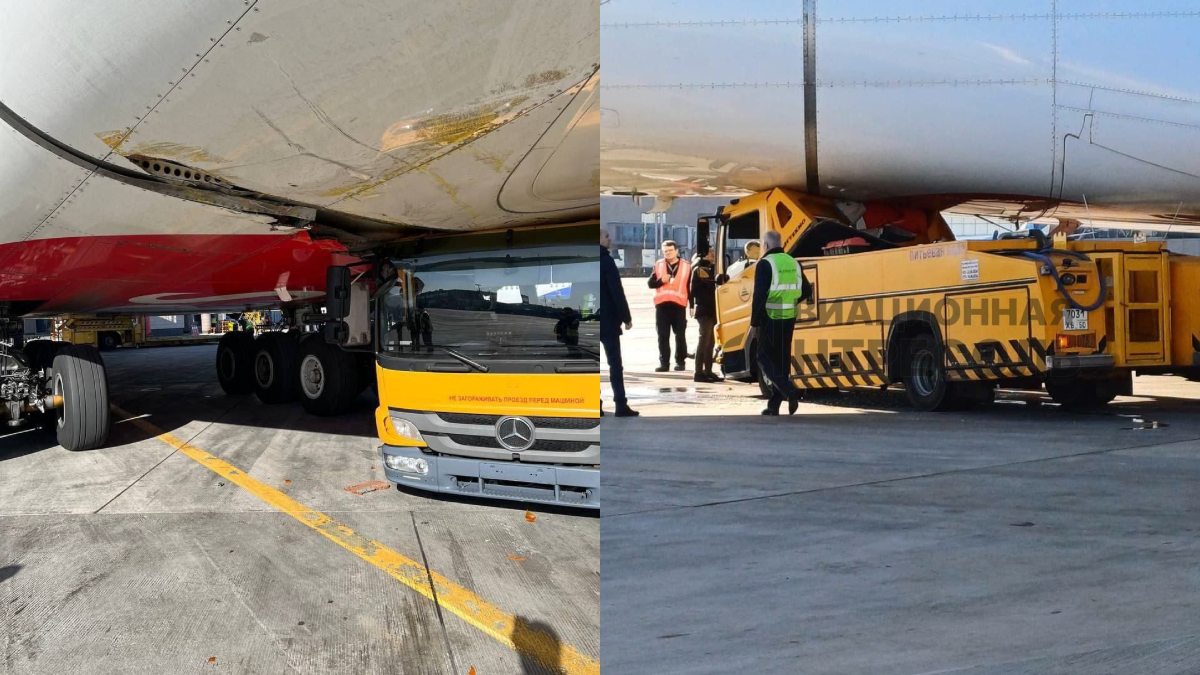An unfortunate incident at Moscow Domodedovo Airport led to the cancellation of an Emirates flight bound for Dubai International Airport on March 27, 2024. The Airbus A380, slated to operate flight EK134 with a departure time of 16:35 and an expected arrival in Dubai at 23:15, encountered a mishap when it came into contact with a ground vehicle during preparations. The collision resulted in significant damage to the aircraft’s undercarriage, as evidenced by images circulating on social media platforms.
Truck crashed into Emirates Airbus A380 (A6-EDM) in Moscow, Domodedovo airport (UUDD/DME). pic.twitter.com/V4BpfJDFBg
— Aviation Antresol (@antresol_avia) March 27, 2024
These photographs depict a yellow ground vehicle lodged beneath the massive airliner, highlighting the extent of the structural damage. Despite the severity of the incident, no injuries have been reported among passengers or crew members. Inquiries have been made to Emirates for further details on the matter, with responses pending.
Emirates, known for its extensive operation of the Airbus A380, conducts three daily flights connecting Moscow with Dubai. Among these, two flights (EK 132 and EX 134) utilize the A380, while the third (EK 130) is served by a Boeing 777. According to Cirium Aviation Analytics, Emirates has scheduled 180 return flights for April between these destinations, offering a capacity exceeding 81,000 seats.
The damaged Airbus A380, bearing the registration A6-EDM, has been with Emirates since its delivery in September 2010. The nearly 14-year-old aircraft boasts a seating arrangement for 489 passengers across three classes: 399 in economy, 76 in business, and 14 in first class. Over its service life, A6-EDM has logged almost 46,000 flight hours over 5,678 flight cycles. The timeline for its repair and return to service in Moscow remains uncertain.
Emirates stands as the largest operator of the A380, with a current fleet comprising 119 of these superjumbos, 90 of which are actively serving. The airline utilizes various configurations of the A380 to cater to its global destinations, including a high-density model that accommodates 615 passengers.





